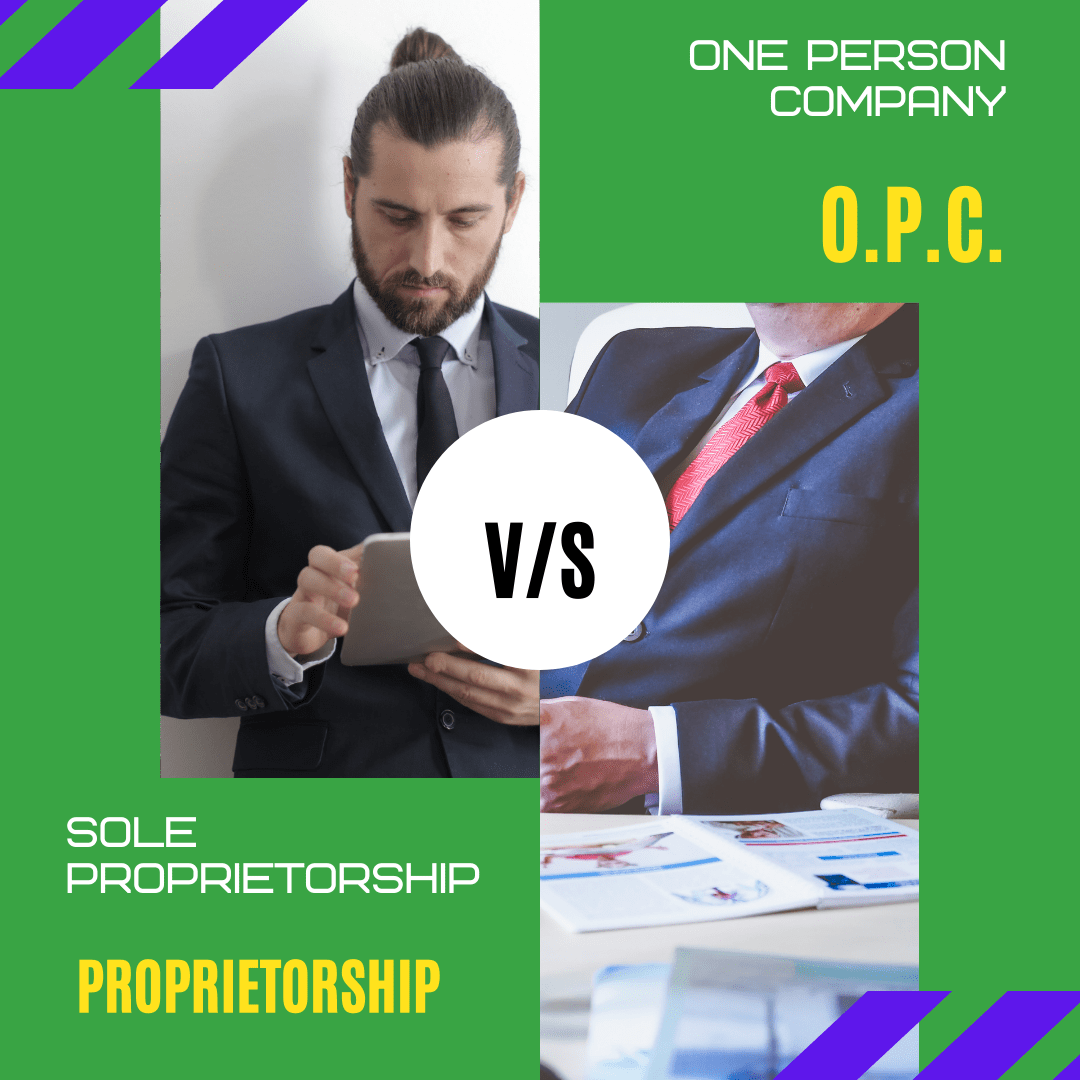ONE PERSON COMPANY
One person company was introduced by the companies act 2013. It means a company formed with only one(single) person as a member, unlike the traditional manner of having at least two members. It is recognition of single person economic entity lightens a path for small traders, service providers to venture into business by expanding their opportunities through corporate identity.
As per provision of section 2(62) of the companies Act, 2013 defined “one person company” means a company which has only one person as member.
Any natural person (should not be minor) who is an Indian citizen whether a resident in India or not i.e. NRI shall be eligible to incorporate a One person company and appoint nominee of an OPC, timeline for Non-resident individuals has been reduced to 120 days.
BASIC MANDATORY COMPLIANCE FOR ONE PERSON COMPANY
The basic mandatory compliance comprises:
- Maintenance of proper books of accounts.
- Statutory audit of Financial statements.
- At least one board meeting in each half of the calendar year and the time gap between the two Board Meetings should not be less than 90 days.
- Filing of business income tax returns every year before 30th September.
- Filing of Financial statements in form AOC-4 and Annual return in proposed form MGT 7-A.
SOLE PROPRIETORSHIP
A sole proprietorship-also referred to as a sole trader or a proprietorship-is an unincorporated business that has just one owner who pay personal income tax on profits earned from business.
A sole proprietorship is the easiest type of business to establish or take apart, due to lack of Government regulation. As such, these type of businesses are very popular among sole owners of businesses, individual self-contractors and consultants. Many sole proprietors do business under their own names because create a separate business or trade name isn’t necessary.
For example, the debts of the sole proprietorship are also the debts of the owner. However, the profits of the sole proprietorship are also the profits of the owner, as all profits flow directly to the business’s owner.
COMPLIANCES REQUIRED FOR SOLE PROPRIATERSHIP
- Filing of Income Tax Return annually.
- Filing of GST Return if you are registered under GST.
- Deduct TDS and file TDS return if liable for Tax Audit.
DIFFERENCE BETWEEN SOLE PROPRIETORSHIP AND ONE PERSON COMPANY
| BASIS OF DISTINCTION | SOLE PROPRIETORSHIP | ONE PERSON COMPANY |
| Registration | Not mandatory | Can be registered under MCA and Companies Act 2013 |
| Entity | No separate legal entity | Separate legal entity |
| Liability | Unlimited liability | Limited liability to the extent of share capital |
| Minimum members | Sole Proprietor | Minimum 1 person |
| Maximum members | Maximum 1 person | Maximum 2 person |
| Nomination | Optional | Mandatory nomination of 1 natural person to form an OPC |
| Directors | Not applicable | Minimum number of director 1 and maximum no. of director can be 15 unless increased |
| Type of structure | Sole form | Corporate structure |
| Foreign ownership | Not allowed | Allowed if one is the director and other is the nominee. Both the director and the nominee cannot be foreign citizens |
| Transferability | Not allowed | Allowed to 1 person only |
| Set up | It is easily set up without any legal formalities | It requires all formalities to be done |
| Survival | Comes to end on death or retirement of the member | OPC continues to exist, even after death or incapacity of member |
| Compliance | It only needs to file annual return | OPC needs to have their books audited, annual filings and inform the ROC in case of any changes in its structure |
| Taxation | Taxed as an individual | Taxed as Pvt. Ltd. Company |
CONCLUSION
Sole Proprietorship and one person company are very different from each other but both these forms of business structures have their own benefits and risk involved. OPC is like a corporation headed by a single individual as compared to sole proprietorship. When it comes to registration process there is no explicit way to register a sole proprietorship and on the contrary, there is lesser compliance which is to be followed for registering a One Person Company.













